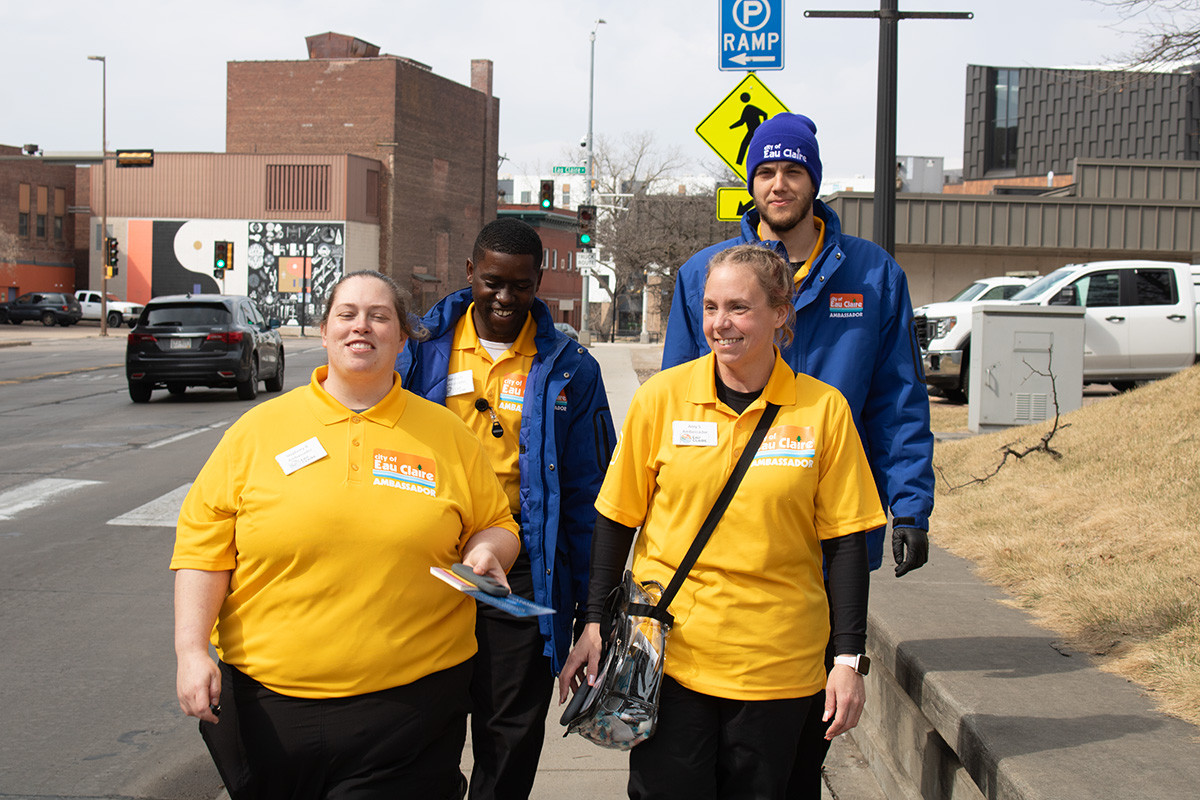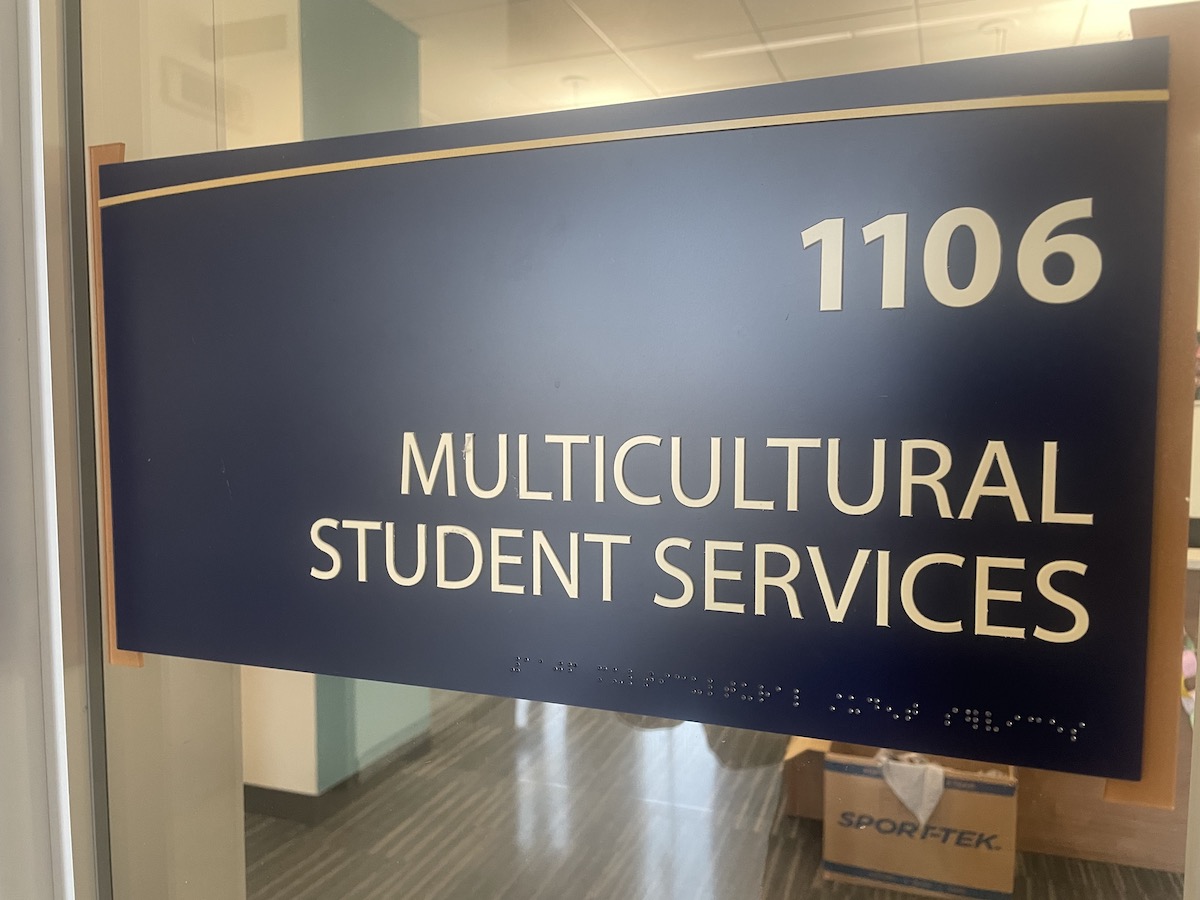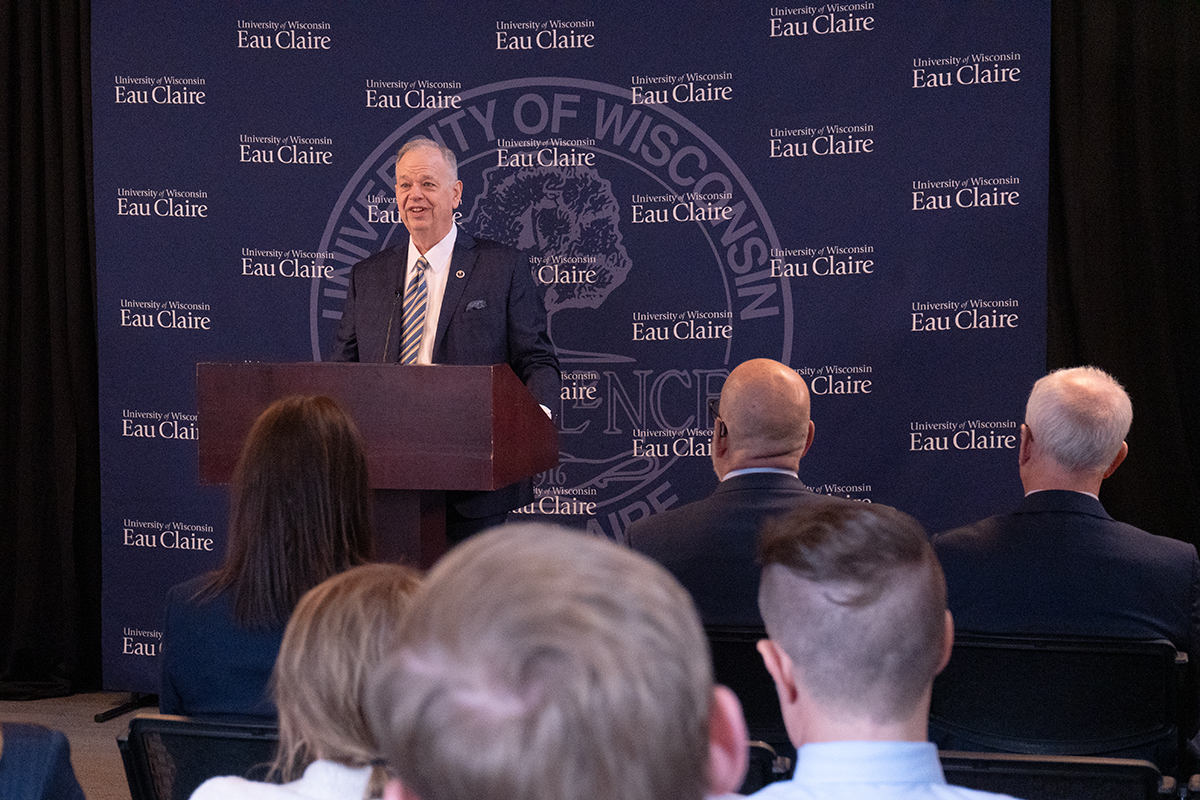This week the Happiness Initiative in Eau Claire began it’s brief survey period to gauge the overall happiness of UW-Eau Claire and the
Eau Claire area.
“It’s about getting people to come together and work on issues that they care about in society,” said junior Nicholas Warren.
Warren and others are a few of the students that brought back the Happiness Initiative to the Eau Claire area. Eau Claire is one of the first and few cities in the United States to take part in this unique research project.
The committee will submit a survey online that will gauge a communities’ psychological well-being, said the Campus Coordinator Terry Chemielewski who is in charge of the random sample collection with his wife
Elizabeth Chemielewski.
“The survey is a way to get people to identify with it (Happiness Initiative), and on campus, what I want to do is to show students that they have power and they can tackle issues,” Warren said.
The survey will be made available to those living on Eau Claire’s campus and a separate survey for those living outside of the university campus. In the news release, the survey is said to take up to about 10-15 minutes to complete.
“There are a lot of various indicators we can look at to see how healthy a community is,” Terry Chemielewski said. “Stuff like how much is the annual income, what’s the education level of the people in the community.”
Elizabeth Chemielewski said that random classes will be targeted on campus to take part in the survey.
“We’ll have some psych classes, some sociology classes, some communication classes, and we’re going to be opening up to other departments to see if they want to take part in the survey,” Elizabeth Chemielewski said.
The length of the overall survey will span from November to mid-December. The survey process will take a brief break and then come back in January and continue for a few more months, said Jasmine Krotzman, the campus coordinator for the survey.
Sustainable Seattle is the committee that is working to collect all of the data nationwide. It is working with Clear Vision Eau Claire to aid in the collection process. How can communities improve if they are less happy is one of the questions that the researchers are hoping to figure out, said co-chair to the committee John Stoneburg.
“(We want) to create an arena for community dialogue about well-being in the greater Eau Claire area,” Stoneburg said.
Stoneburg said that perhaps in about three to five years they will re-introduce the survey to Eau Claire again and compare the results. These results will become very useful for a variety of reasons.
“We think that this will be beneficial not only for students on campus, but members of the community and we want to get as many people involved so we can see what our level is happiness is now and how we can achieve a higher level of happiness,” Elizabeth Chemielewski said.







